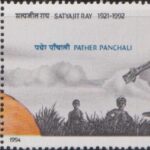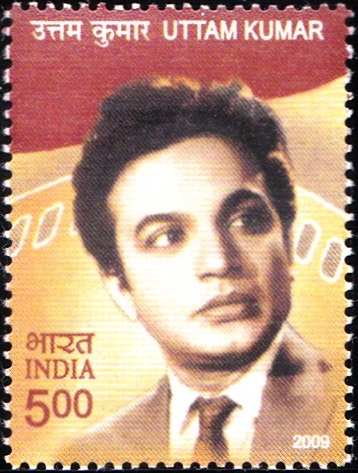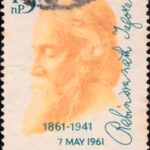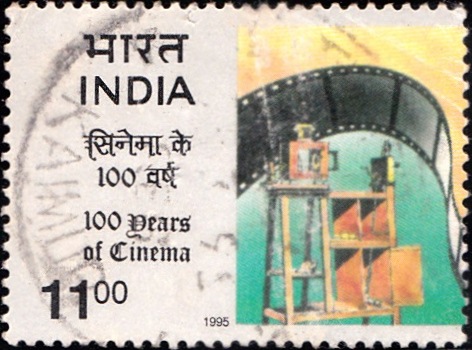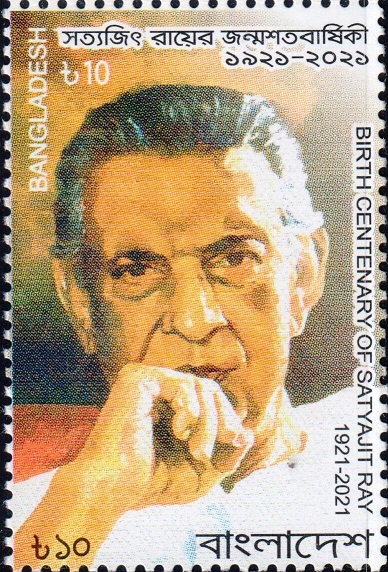
Bangladesh on Satyajit Ray
A commemorative postage stamp on the occasion of Birth Centenary of Satyajit Ray, an Indian Bengali Filmmaker :

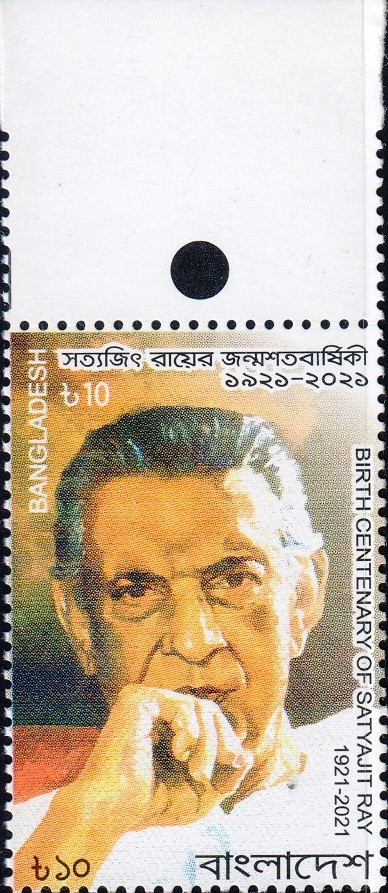 Issued by Bangladesh
Issued by Bangladesh
Issued on May 2, 2021
Issued for : Bangladesh Post has issued 01 (One) Commemorative stamp of Tk. 10 (ten), 01 (one) First Day Cover of Tk. 10 (ten), a Data card of Tk. 5 (five) and a Special Canceller on this issue.
Designer : Mr. Sumanto Kumar
Type : Stamp, Mint Condition
No. of Stamp : 01 (One) Pcs
Colour : Multicolour
Denomination of Stamp : Tk. 10/- (Ten)
Size of Stamp : 32 mm x 48 mm
Perforation of Stamps : 12.5
Qnt of Stamps : 1,00,000 (One Lac) pcs
Process of Printing : Offset
Printer : The Security Printing Corporation (Bangladesh) Ltd., Gazipur-1703
Name : Satyajit Ray (Manik)
Born on May 2, 1921 at Calcutta, Bengal Presidency, British India [now in West Bengal, India]
Died on Apr 23, 1992 at Calcutta, West Bengal, India
About :
- May 02, 2021 is the birth centenary of the Oscar winning Indian world famous filmmaker Satyajit Ray. Satyajit Ray was an Indian film director, script writer, art director, documentary filmmaker, author, book cover designer, lyricist, magazine editor, publisher, calligrapher and music composer and music director. He was also graphics designer, writer and film critic. He is widely regarded as one of the greatest film makers in film history.
- Satyajit Ray was born on May 02, 1921 in an intellectual and affluent family in the then Calcutta, Bengal Presidency in British India [Now Kolkata, West Bengal, India]. He was son of the famous author Sukumar Ray who might still be considered one of the best authors in Bengali literature who before Tagore received the Nobel Prize in 1913, gave a talk at the East and West society in London about Tagore’s songs, by reading the essay – ‘The Spirit of Rabindranath’. His mother was visionary Kalinarayan Gupta’s granddaughter Suprabha Das. His grandfather Upendra Kishore Ray was a distinguished artist, Musician, Music composer and Printing pioneer.
- Satyajit Ray studied at the University in Calcutta and later came to Shantiniketon in 1940 and joined Vishva Bharati university of Rabindranath Tagore to study art. He began his career as a commercial artist. He founded Calcutta’s first film society in 1947. Bijoya Ray was the wife of Satyajit Ray. Bijoya and Satyajit were first cousins. After long courtship, they were married in 1949.
- Satyajit Ray made his first film Pather Panchali (1955, Song of the Little Road) while working at an advertising agency. On August 26, 1955, Pather Panchali was finally released in Calcutta where one of its billboards designed by Satyajit Ray portrayed Apu and Durga running in a Vast landscape of dark monsoon clouds which gave the film an exquisite illusionary allusion as if a visual manifestation of any wonderful epic episode of any unprecedented and remarkable legend displayed in a billboard!
- There was a screening of Pather Panchali for Pandit Jawaharlal Nehru, the then Prime Minister of India who was on a visit to Calcutta. Nehru was moved by the film and ensured that Pather Panchali was entered in the Cannes Films Festival, 1956. The film won the special jury prize for “The Best Human Document”. Pather Panchali went on to win a dozen odd prizes at home and film festivals abroad, including Best Actress for Chunibala for her role as Indir Thakrun at Manila.
- Pather Panchali with his Aparajito (1956, The Unvanquished) and Apur Sansar (1959, The World of Apu) are known as ‘Apu Trilogy’. His later films include Jalsaghar (1958, The Music Room), Kanchenjunga (1962), Charulata (1964, The Lonely Wife), Ashani Sanket (1973, Distant Thunder), The Chess Players (1977), (1984, The Home and the World), Ganashatru (1990, Public Enemy) and Agantuk (1991, The Stranger). The success of Pather Panchali gave Satyajit Ray total control over his Subsequent films.
- Apart from being an incredible filmmaker Satyajit Ray wrote numerous books for children and even illustrated some of his characters. ‘Feluda’ and ‘Professor Shonku’ are his remarkable creations in Bengali literature. His books have also been translated in English, German, Polish, French, Spanish, Italian and other Indian languages.
- Satyajit Ray received many noticeable awards and gained a prestigious position over his life time. In 1978, he was awarded an honorary degree by Oxford University. He received Dadasaheb Phalke Award in 1985. He was awarded the legion d’honneur (Legion of Honour) by the President of France in 1987. The Government of India honoured him with the Bharat Ratna, its highest civilian award in 1992. Satyajit Ray received Academy Honorary Award in 1992, becoming the first Indian to receive an Honorary Oscars. He received the Award for Life time Achievement.
- Satyajit Ray died in Calcutta (Now Kolkata), West Bengal on 23 April 1992 (aged 70). His wife Bijoya Ray died in Calcutta (Now Kolkata), West Bengal on 02 June 2015 (aged 97). Their only son Sandip Ray is also a celebrated film director.
- Satyajit Ray was a humanist and poetic naturalist artist filmmaker. The influences of the Ajanta and Ellora style of paintings are seen in his arts and works. Satyajit Ray the legendary Indian filmmaker and among the dozen or so great master of world cinema, is known for his humanistic approach to cinema. Satyajit Ray’s life in Shantiniketon and its Surroundings where he experienced the rural life of Bengal that reflected in his films like Pather Panchali (1955, Song of the Little Road) and Apur Sansar (1959, The world of Apu).
- Satyajit Ray the towering figure in the world cinema and remarkable filmmaker left behind an eternal legacy of a perpetual inspiration of inquisitiveness, cultivation of science, love, respect, kindness and humanity. His artistic legacy will live on forever through his classical cinema’s calligraphies, illustrations, book covers, books, arts and literary works.
- Narrator: Shafiee Billah Jabber
Son of Martyred Intellectual Abdul Jabber of Bangladesh Liberation War and
Author of the Trust: Martyred Intellectuals Memorial Trust, Bangladesh.
Editor and Publisher: The Daily Asian Express and Fortnightly City of Joy.


